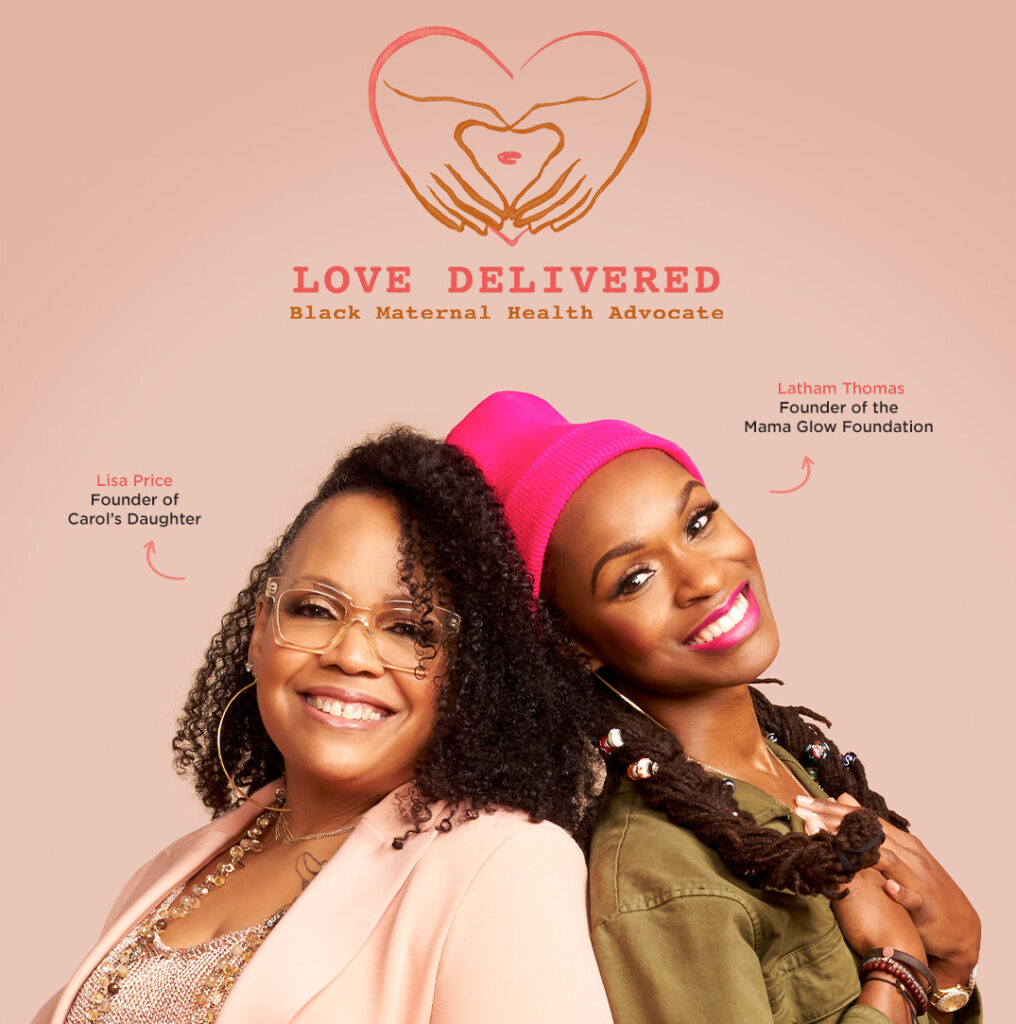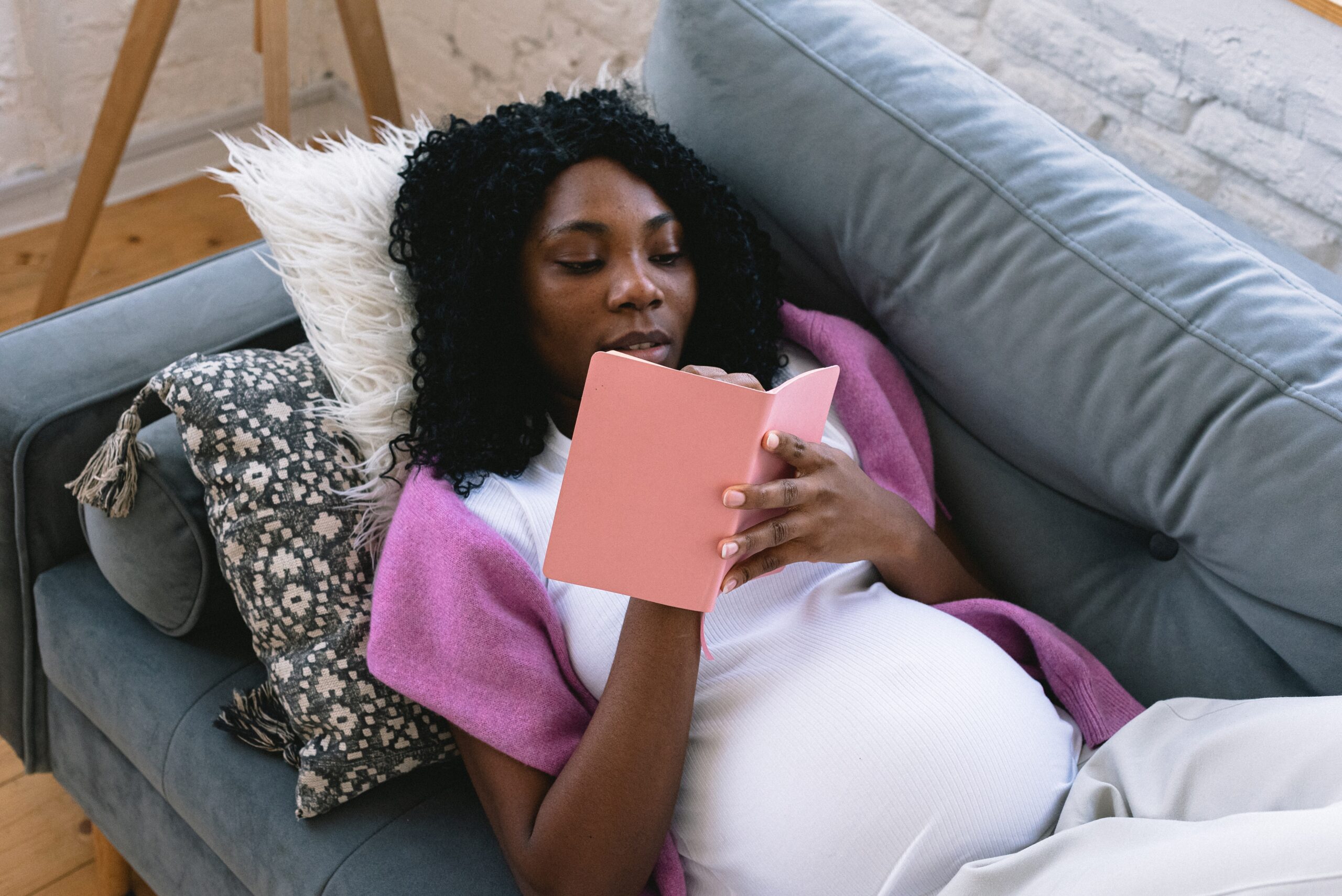Black maternal health is an issue that is often overlooked. Brooklyn-based hair care company, Carol’s Daughter and partner, the Mama Glow Foundation have made it their mission to address the matter with the Love Delivered initiative. Going into its third year, the initiative is a voice and resource for Black birthing people and babies. The news of Love Delivered’s third year comes just in time for Black Maternal Health Week.
Black Maternal Health Week
Black Maternal health week is an annual event that raises awareness about Black maternal mortality in America. Running from April 11 to April 17, the week highlights the disparities in maternal health outcomes for Black birthing people. Additionally, the week is a call to action for change. According to the CDC, Black women in the United States are three to four times more likely to die from pregnancy-related complications than white women.
One of the biggest goals of the week is to increase access to high-quality maternal healthcare for Black people. This includes better access to prenatal care and doulas as well as ensuring that healthcare providers give Black mothers the care they need including post-partum care. This is where Love Delivered comes into play.
In Love Delivered’s third year, the program will expand with additional doula grants, webinars, grassroots activations and a new social media fundraising campaign. 21Ninety had the chance to catch up with Carol’s Daughter’s Lisa Price and Mama Glow’s Latham Thomas to discuss more about the initiative.
The Start Of Love Delivered

21Ninety: Congrats on the third year of Love Delivered! What was the reason that Carol’s Daughter started this initiative three years ago?
Lisa Price: This particular initiative is something that I was interested in before I was aware of how bad the statistics are for Black and brown birthing people. I didn’t have the best birth experience when I gave birth. Both of my children are fine and I’m fine, but it just wasn’t the best that it could be. I had the benefit of having a best friend who was in training to be a doula at the time of my firstborn. It was very helpful to have that person there who wasn’t involved in the same way my husband and I were. When I gave birth the second time, she couldn’t be there. I could see that there was such a big difference having that advocate in the room.
This was something that I always kind of wondered, how could I get involved with this? How could I have this conversation with other people: a broader audience than just your friends or colleagues who are having babies. Latham and I had a series of video messages to one another during the quarantine. In those conversations she let me know that her organization, Mama Glow, was in the process of filing their paperwork to become a not-for-profit. That was how it all began. We decided that we would do this initiative together and try to amplify the message that both of us feel can be better for birthing people.
21N: From the Mama Glow side, what was it like to get started in this partnership with Love Delivered?
Latham Thomas: We had a really nice back-and-forth over audio text, about finding a way to bridge the philanthropic efforts of Carol’s Daughter, with the emergence of this moment that we’re all living through. We were looking at health equity, and looking at how the health continuum has been impacting our lives, specifically as black women, and what could that look like from the lens of the work, where we stand at Mama Glow, and at the foundation.
I was really grateful that we were able to come together and work in this way. Going into the third year, we’ve been able to support, not only families but also employ many doulas through the Love Delivered program. The doulas can work as contractors to support families through birth or postpartum support. We’ve been able to create resources as well. There’s a 64-page Black birth resource guide, that is really just a love letter and a space where folks can learn. There’s also educational webinars that we’ve been hosting, sponsored by Carol’s Daughter.
It’s been lovely to be able to work alongside an organization that is committed to making a change in community and supporting Black folks all around.
The Growth of Love Delivered
21N: Within the past three years, how have you seen Love Delivered evolve?
LP: What I can see personally is so much conversation, so much warm reception and engagement from our audiences when we post about this topic. You never hear someone say, “Oh, can we stop talking about this?” People are hyper-interested even if they are no longer in the birthing process themselves.
We participated in the Mama Glow Doula Expo last year. We’ll be participating again this year. The other thing that I know Latham has been very focused on is the balance between needing to get the word out that the statistics are unacceptable, but at the same time preserving the peace and the joy that birthing people should be experiencing when they’re going through this process. We don’t want to preach doom and gloom and have people going into the labor process and birth with anxiety.
Also, there are people who think, “Well, I don’t know if I can have a doula because my doctor says that for whatever reason I need to have a C-section.” People sometimes equate that if you have one thing, you can’t have the other thing. When you go to the Love Delivered website, you get the information to clarify those things. So even if you have to have a C-section, you can still have a doula help you to prepare, and ask the right questions. Especially if you’ve never had a C-section before, you might not know what to expect.
You can also have a doula help you when you’re coming home to heal. So there are so many ways that you can get assistance and help. That’s one of the things that I can see anecdotally coming out of this process. We’re able to provide so much information to people that they just didn’t know
The Importance Of A Doula
21N: Doula care is one of the biggest focal points of Black Maternal Health Week. Why is it so important for birthing people to have one?
LT: Because of the state of birthing in the United States, it requires us to have support and advocacy tools to navigate the process. It is precarious to give birth in the US. It’s not safe everywhere, and it’s not safe for all people. Because of that fact, you can increase your chances of a better birth outcome by having the support of a non-clinical care worker, such as a doula, who has some skills in navigating spaces like hospital settings. It can be very helpful, in many cases, to have that extra support.
Not only does it improve your overall birth outcome, but also can increase things like, breastfeeding success, the chances for vaginal delivery and can decrease the chance of postpartum depression and anxiety. But in addition to that, when someone has an extra set of hands that’s just for them, it makes a huge difference.
There’s lots of ways to find doulas. There are doulas for every type of person, regardless of financial background. There are folks who work pro bono as community-based doulas, there’s people who work on a sliding scale. So in terms of affordability, there’s really no excuse to not be able to have one.
A doula can help you to cope with the changes that occur along the birthing continuum, help you adjust. These are all really important things that doulas can help do.
Love Delivered for Black Maternal Health Week
21N: What can we look forward to from Love Delivered this Black Maternal Health Week?
LP: We always share information, but that gets amped up during this week. It’s such a labor of love for both of us to be able to do this and to share the information.
During Black Maternal Heal week, Love Delivered will also be making a donation to the Mama Glow Foundation to fund additional doula grants. A donation will be made for every person that shares their #BirthingWhileBlack story on social media as a way to raise awareness around Black Maternal Health.
This article has been edited and condensed for length and clarity.
